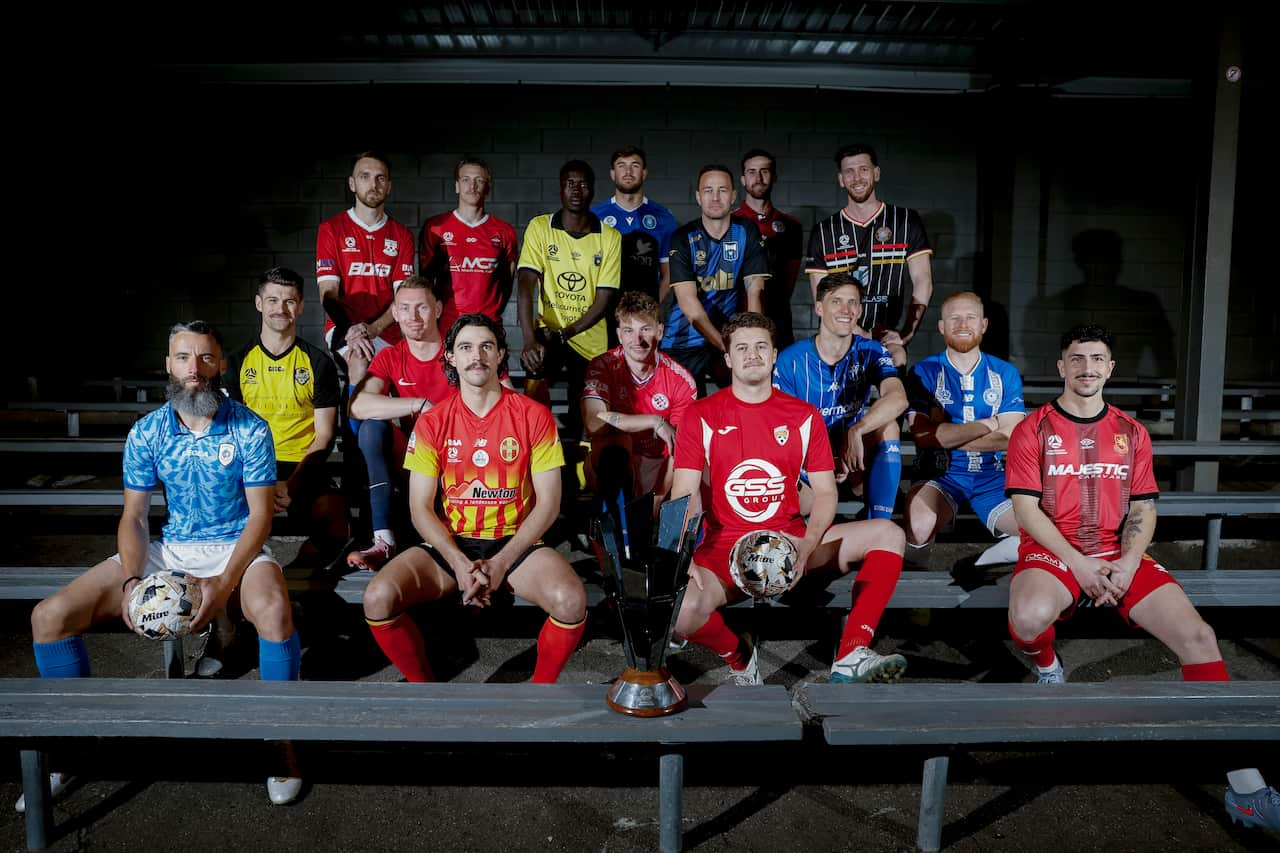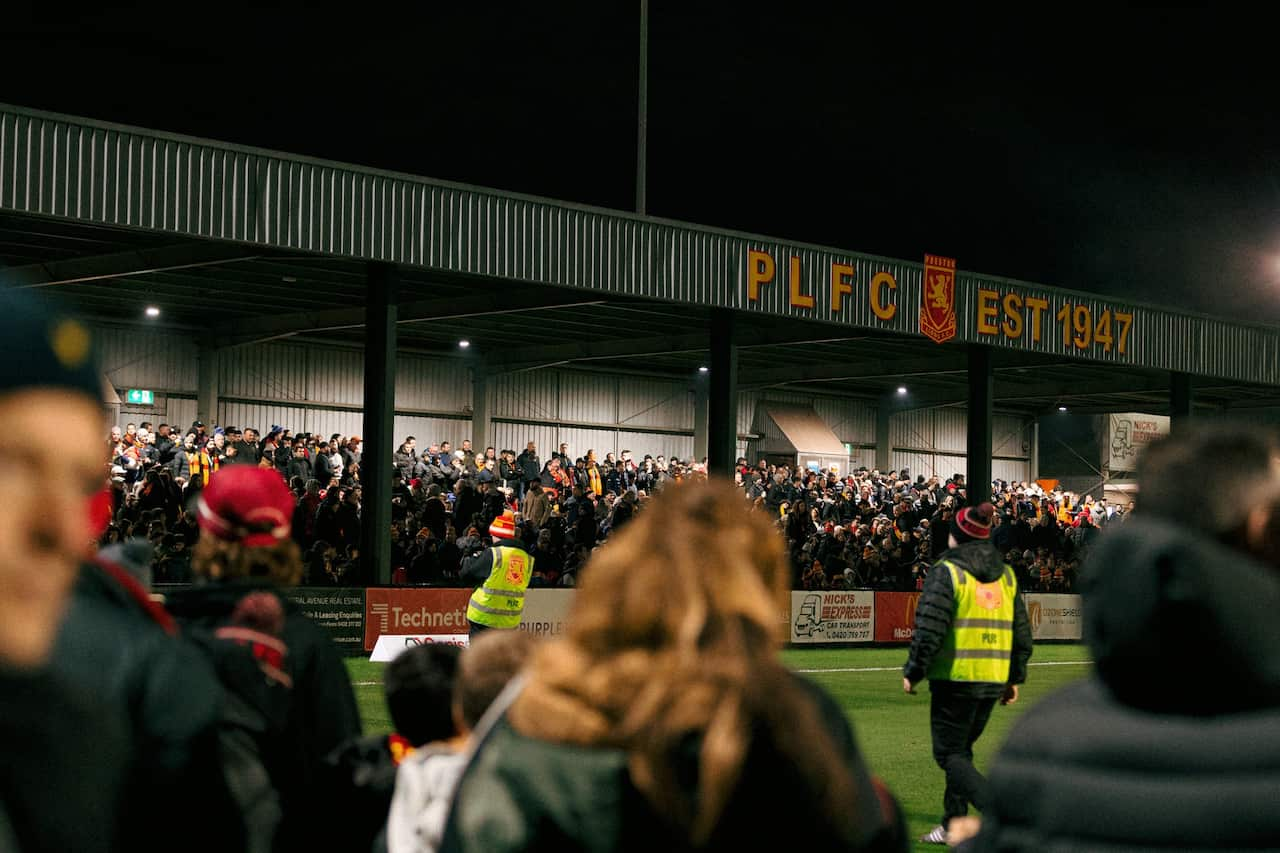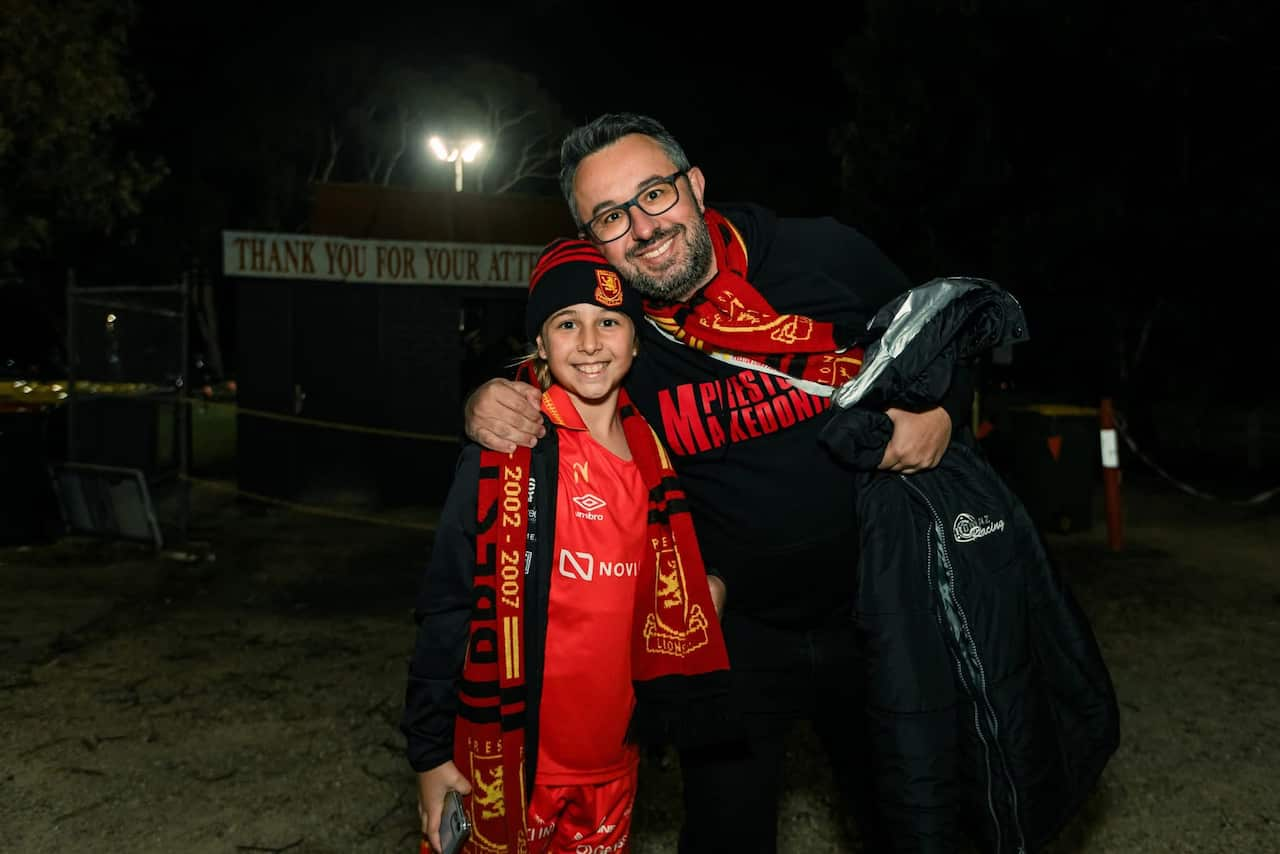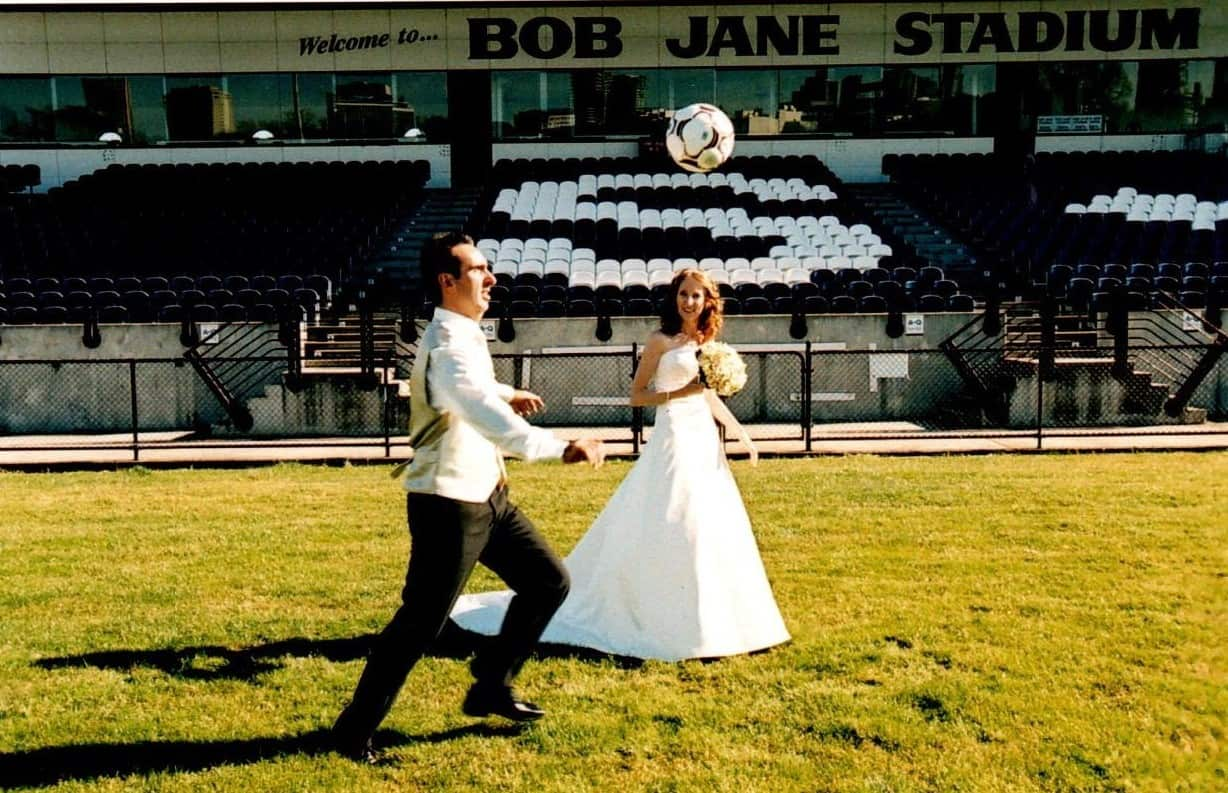Chants of "Makedonia" ring out from beneath a corrugated iron pavilion at a suburban Melbourne football ground, where thousands of keen spectators are gathered.
Preston Lions FC have just scored against Avondale FC and the crowd erupts as smoke and the scent of kebapi — a favourite Balkan dish of small, skinless sausages — drifts through the air.
Welcome to the National Premier Leagues — the beating heart of grassroots Australian football.
The competition's biggest clubs are returning to the national stage with the launch of the inaugural Australian Championship, broadcast exclusively by SBS.
Preston, alongside 15 other semi-professional teams, will be thrust into the spotlight, with supporters hoping the tournament will lay the groundwork for the introduction of a promotion and relegation system — which would allow for the transfer of teams between leagues — to the top-flight of Australian football, the A-League.

The historic clubs of APIA Leichhardt, Avondale, Marconi Stallions, Preston Lions, South Melbourne, Sydney Olympic, Sydney United 58 and Wollongong Wolves will be joined by the premiers of the NPL competitions from across the country when the Championship — which will run from 10 October to 6 December — kicks off.
'It felt like home'
Founded in 1947 by Macedonian migrants, Preston Lions FC, like many of its rivals, was born amid Australia's post-war migration boom.
The club was originally called the Makedonia Soccer Club and enjoyed early success in the now-defunct National Soccer League (NSL) — the A-League's predecessor — before being relegated to the lower leagues in 1994.

Its cultural roots still run deep, woven through generations of supporters who have built and sustained the club's culture and fan base.
Tony Dimoski grew up watching games with his Macedonian parents and now brings along his 11-year-old daughter Tianna, who dreams of one day playing for the senior women's side.
"There were many other Macedonian clubs … but Preston was the one we always went to because there was always a great environment," he tells SBS News.

"The food, the people, it felt like home."
It's a similar story for Peter Kartsidimas, who was only five when he first saw a match played by South Melbourne — a club of Greek heritage that was once home to former Socceroos and Tottenham coach Ange Postecoglou, both as a player and a coach.
"I will defend it with my life because the club means so much to me, and it's given me such great experiences," Kartsidimas says.
His love for the club runs so deep that his wedding photos were taken at South Melbourne's home ground, Lakeside Stadium.

Preston and South Melbourne share a fierce rivalry. One of their games in March, played at the Lions' home ground, B.T. Connor Reserve in Reservoir, attracted a crowd of more than 9,000 fans and was dubbed 'The Big Show'.
Preston president David Cvetkovski says community football has a "sense of atmosphere" that is difficult to replicate.
We have a soul, we have character, and we have 78 years of history that money can’t buy.
Now competing in the top Victorian NPL competition after three promotions since 2019, Cvetkovski characterises the club's recent history as a "renaissance".
"We have aspirations like any club; if they're good enough, they can compete in the top-tier," he says.
Former Melbourne Victory defender Matthew Bozinovski joined Preston earlier this year and says the club's supporters are driven by "pure passion".
"We often have five or six locals who come and just watch us train in the cold winter nights, and they don't miss a beat," he says.
Heidelberg’s dream cup run
Another Melbourne club with deep roots entering the Championship is Heidelberg United — fresh from a fairytale Australia Cup campaign in which they beat three A-League sides before bowing out to Newcastle Jets in the final.
The club traces its history to 1958, when migrants from Florina in northern Greece established Alexander the Great Soccer Club, later renamed Heidelberg United.
For fans — known as 'Bergers' — like Peter Alipanopoulos, the connection spans generations. So much so, he named his son Alexander after the team.

“As a kid, it was always my grandfather, my father, my uncle and me in the car going to watch every game,” he says.
“My grandfather has since passed away, and now it's my father, my uncle and me and my son going to the game, so the tradition continues."
He says the club is more than just a team; it's a social hub and a symbol of cultural identity for Melbourne's post-war Greek-Macedonian community, drawing solid crowds to its home ground in Olympic Village in Heidelberg West.
Board member John Gioftsidis says the Championship is a chance for clubs like Heidelberg to reclaim their place in the national spotlight.
"A lot of these clubs have put in the hard yards and really worked hard to survive, let alone thrive in the current football landscape," he says.
They were the powerhouses of football throughout the last half a century … there's no reason why they can't be again.
Clubs back Australian Championship
Australia's first national competition, the NSL, began in 1977 and was part of a push to unify the country's fragmented state-based competitions and give migrant-founded clubs — many tied to Greek, Italian, Croatian, Macedonian, and other communities — a bigger stage.
But by the early 2000s, the league was in crisis, with declining attendance, cash-strapped clubs and ethnic tensions sometimes spilling into the stands.
The NSL wound up in 2004 and was succeeded by the A-League the following year, which comprised eight teams — most of them new — and aimed to broaden football's appeal.
Peter Tsekenis, who coaches Sydney's Marconi Stallions, tells SBS Italian the Australian Championship was a throwback to the "old NSL days", a time when the club founded by Italian migrants was a dominant force.
"All these clubs have a rich history and a lot of following, but unfortunately, that following sort of disappeared because it was obviously playing in a lower level," he says.
"Now that these clubs have got the opportunity to play at the national stage ... I've already noticed a lot of interest from people.
"That's the exciting part, and it's how the clubs embrace this and bring people back to the stadium to support these clubs that they've supported most of their lives."
For Ante Jurić, the head coach of Sydney United 58, the Championship offers his players a chance to play at a higher level.
"The best teams are playing, obviously the standard will improve because of that, there will be fan growth and engagement," he tells SBS Macedonian.
He adds that the introduction of promotion and relegation was a matter of time.
"This is a step towards that," he says.
Football Australia interim chief executive officer Heather Garriock tells SBS News the Australian Championship was about strengthening the connection between grassroots football and the broader game.
"Football in Australia is so multicultural, and for us to be able to celebrate that, the heritage, the history and the communities that feel a sense of belonging to the clubs ... is so vitally important."
The inaugural Australian Championship will be held over six rounds, followed by quarter and semi-finals, with the final set for 6 December.
– With additional reporting from SBS Italian and SBS Macedonian.
You can catch all the action of the Australian Championship live on SBS or online at SBS On Demand.
For the latest from SBS News, download our app and subscribe to our newsletter.

